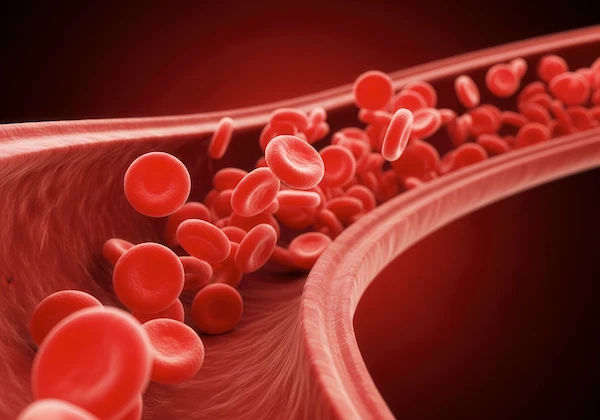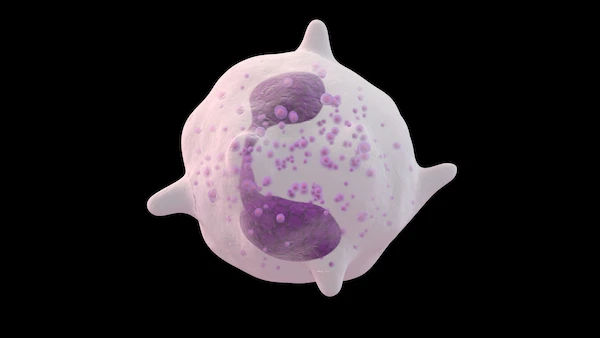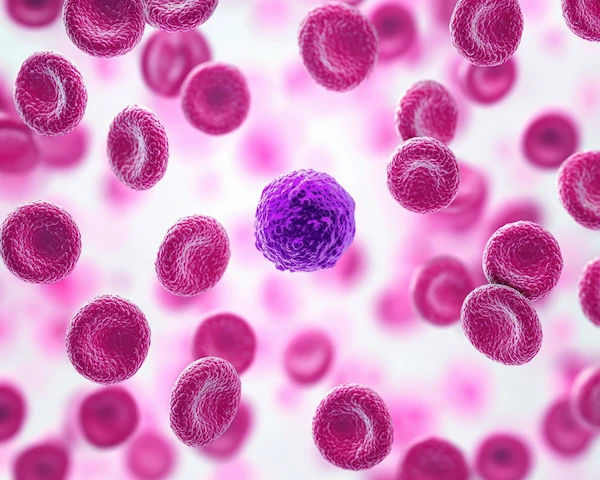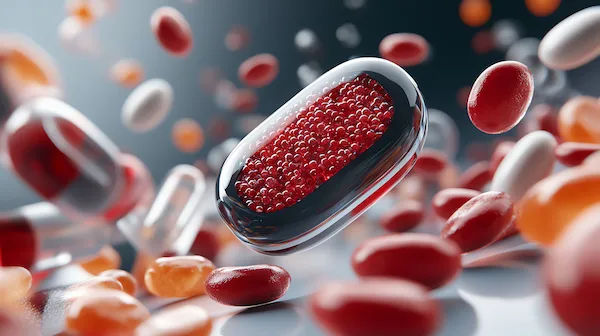Globulin Blood Test Overview and Results
Confused about your globulin blood test results? Learn what globulin is, why this test matters, what high or low levels mean, and when to consult a doctor.

Written by Dr. M L Ezhilarasan
Reviewed by Dr. Rohinipriyanka Pondugula MBBS
Last updated on 8th Aug, 2025

Introduction
When you go for a blood test, you might hear terms like globulin that sound complicated. But don’t worry—this guide will help you understand what a globulin blood test is, why it’s done, and what your results mean in simple terms.
What Is a Globulin Blood Test?
The globulin blood test measures the levels of globulin proteins in your blood. Globulins are a group of proteins made by your liver and immune system. They play a crucial role in:
- Fighting infections
- Transporting nutrients
- Helping blood clot
- Supporting liver and kidney function
This test is often part of a total protein test, which also checks albumin levels. Together, these proteins help doctors assess your overall health.
Why Is This Test Done?
Your doctor may recommend a globulin blood test if you have symptoms like:
- Frequent infections
- Unexplained weight loss
- Fatigue or weakness
- Swelling in the legs or abdomen (oedema)
- Yellowing of the skin (jaundice)
It also helps diagnose or monitor conditions such as:
- Liver disorders like hepatitis or cirrhosis
- Kidney disorders
- Autoimmune diseases such as lupus and rheumatoid arthritis
- Chronic infections
- Multiple myeloma or other blood cancers
Get Your Symptoms Assessed
Understanding Your Globulin Test Results
Globulin levels are measured in grams per deciliter (g/dL). The normal range is usually:
- Total globulin: 2.0 – 3.9 g/dL
- Albumin/globulin (A/G) ratio: 1.0 – 2.0
1. What Do High Globulin Levels Mean?
If your globulin levels are higher than normal, it could indicate:
- Chronic inflammation or infections like tuberculosis.
- Autoimmune diseases, such as lupus or rheumatoid arthritis.
- Liver diseases like hepatitis or cirrhosis.
- Certain types of blood cancers, including multiple myeloma and lymphoma.
2. What Do Low Globulin Levels Mean?
If your globulin levels are lower than normal, it may suggest:
- Liver or kidney disease.
- Malnutrition or poor protein intake.
- Digestive disorders such as celiac disease or Crohn’s disease.
- Immune system problems due to weakened defences.
Your doctor will interpret your results along with other tests to determine the exact cause.
Consult Top Haematologists
How to Prepare for the Test?
The preparation for globulin blood test is simple:
- Fasting: Usually not required, but follow your doctor’s advice.
- Medications: Inform your doctor about any medicines you take, as some can affect results.
- Procedure: A small blood sample is taken from your arm.
Tips to Maintain Healthy Globulin Levels
If your globulin levels are abnormal, your doctor will guide you on treatment. However, you can support your health with these lifestyle changes:
1. Eat a Protein-Rich Diet
- Include lean meats, fish, eggs, beans, nuts, and dairy.
- If vegetarian, opt for lentils, tofu, quinoa, and chickpeas.
2. Stay Hydrated
- Drink enough water to help your liver and kidneys function well.
3. Manage Chronic Conditions
- If you have diabetes, liver, or kidney disease, follow your treatment plan.
4. Boost Immunity
- Get enough sleep, exercise, and vitamin-rich foods like fruits and vegetables.
5. Avoid Alcohol & Smoking
- These can harm your liver and affect protein levels.
When to See a Doctor?
If your test results are abnormal, don’t panic—many factors can influence globulin levels. However, consult your doctor if you experience:
- Persistent fatigue or weakness.
- Swelling, jaundice, or frequent infections.
- Unexplained weight loss.
Your doctor may recommend further tests like liver function tests, urine tests, or imaging to find the root cause.
Book a Test or Consultation with Apollo 24|7
If you need a globulin blood test or have concerns about your results, Apollo 24|7 makes it easy to:
- Schedule a blood test at home – No need to visit a lab.
- Consult a doctor online – Get expert advice from specialists.
You can book a test or speak to a doctor through the Apollo 24|7 app or website for quick, reliable healthcare.
Final Thoughts
The globulin blood test is a useful tool to check your protein levels and overall health. While abnormal results can be concerning, they often help detect underlying conditions early. By following a healthy lifestyle and consulting your doctor, you can take the right steps toward better health.
Consult Top Haematologists
Consult Top Haematologists

Dr.sanchayan Mandal
Oncologist
17 Years • MBBS, DrNB( MEDICAL ONCOLOGY), DNB (RADIOTHERAPY),ECMO. PDCR. ASCO
Kolkata
Dr. Sanchayan Mandal Oncology Clinic, Kolkata

Dr. E Prabhakar Sastry
General Physician/ Internal Medicine Specialist
40 Years • MD(Internal Medicine)
Manikonda Jagir
Apollo Clinic, Manikonda, Manikonda Jagir
(125+ Patients)

Dr Abilash Jain
General Physician/ Internal Medicine Specialist
12 Years • MBBS,DNB(FM),MNAMS,FIAMS,CCGMG(GERIATRICS),DGM (GERIATRICS),PGCD(DIABETES,BOSTON UNIVERSITY),FID(DIABETICS UK)CCEPC(PALLIATIVE CARE),CCCC(CRITICAL CARE)
Visakhapatnam
Apollo Clinic Vizag, Visakhapatnam
Dr. Velu Nair
Haematologist
36 Years • MBBS, MD (Med.), FRCP, FACP, FAMS, FICP, FIACM, FUICC, FISHTM
Ahmedabad
Apollo Hospitals Gandhinagar, Ahmedabad
(25+ Patients)

Dr. Prabu P
Haematologist
29 Years • MBBS, MD(Gen.Med.)(JIPMER) , MRCP, Dip RCPath, FRCPath, CCT(U.K), Haemato - Oncology.
Chennai
Apollo Hospitals Greams Road, Chennai
(475+ Patients)
Consult Top Haematologists

Dr.sanchayan Mandal
Oncologist
17 Years • MBBS, DrNB( MEDICAL ONCOLOGY), DNB (RADIOTHERAPY),ECMO. PDCR. ASCO
Kolkata
Dr. Sanchayan Mandal Oncology Clinic, Kolkata

Dr. E Prabhakar Sastry
General Physician/ Internal Medicine Specialist
40 Years • MD(Internal Medicine)
Manikonda Jagir
Apollo Clinic, Manikonda, Manikonda Jagir
(125+ Patients)

Dr Abilash Jain
General Physician/ Internal Medicine Specialist
12 Years • MBBS,DNB(FM),MNAMS,FIAMS,CCGMG(GERIATRICS),DGM (GERIATRICS),PGCD(DIABETES,BOSTON UNIVERSITY),FID(DIABETICS UK)CCEPC(PALLIATIVE CARE),CCCC(CRITICAL CARE)
Visakhapatnam
Apollo Clinic Vizag, Visakhapatnam
Dr. Velu Nair
Haematologist
36 Years • MBBS, MD (Med.), FRCP, FACP, FAMS, FICP, FIACM, FUICC, FISHTM
Ahmedabad
Apollo Hospitals Gandhinagar, Ahmedabad
(25+ Patients)

Dr. Prabu P
Haematologist
29 Years • MBBS, MD(Gen.Med.)(JIPMER) , MRCP, Dip RCPath, FRCPath, CCT(U.K), Haemato - Oncology.
Chennai
Apollo Hospitals Greams Road, Chennai
(475+ Patients)





